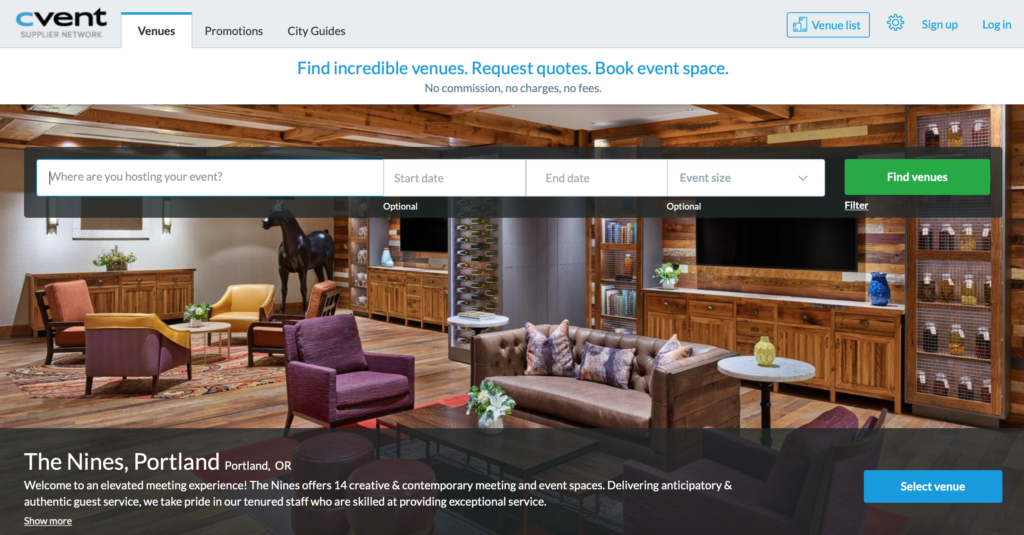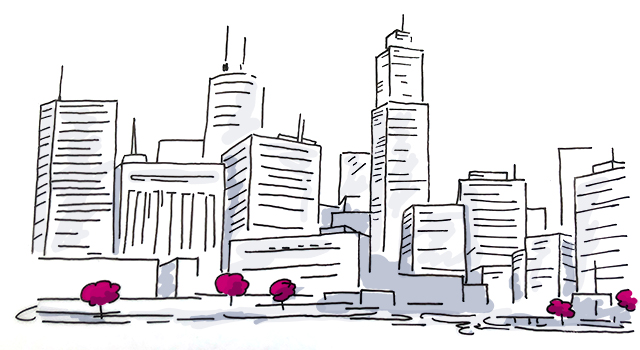
The Best Ways to Find an Event Venue Online
When you’re planning an event on a short timeline, you don’t have the luxury of thoroughly vetting venues, let alone taking the time to find and select the right venue.
To speed up your venue search, turn to technology. Start your search with these 10 venue finder websites that let you shop and compare event spaces in one spot. (Some even let you submit multiple RFPs at once!). And then discover 15 simple steps to take to pick the best event venue.
Complete Your Venue Search Faster with the Best Online Venue Finder Tools:
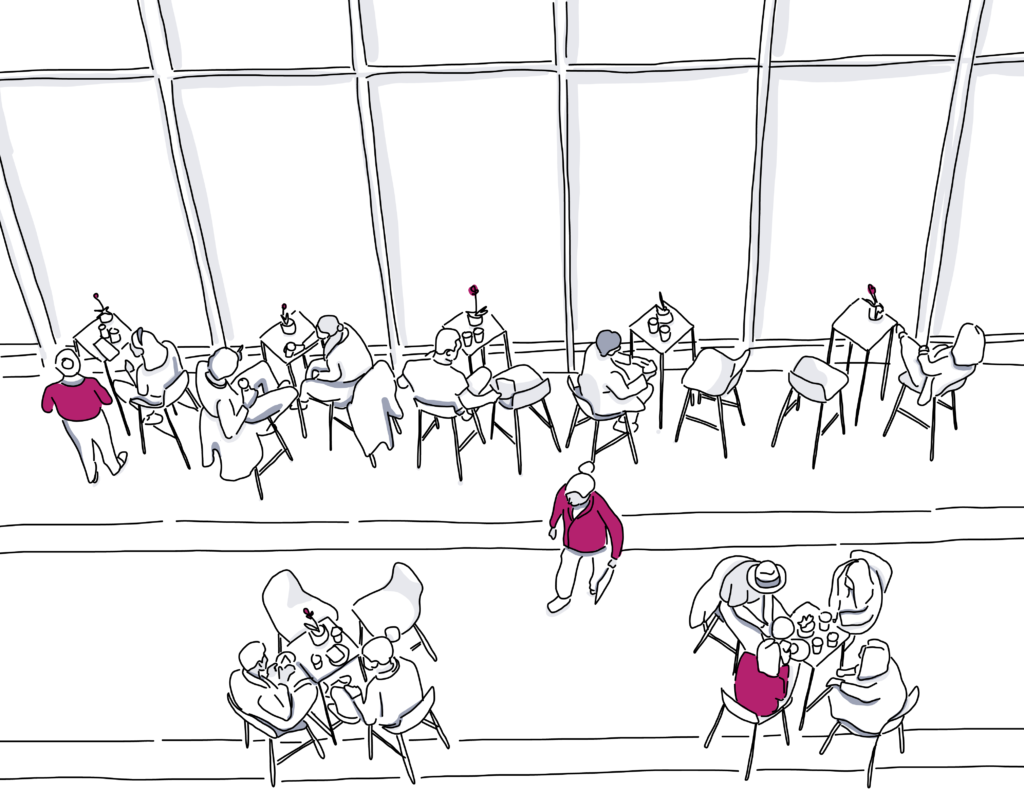
1. Cvent
Cvent offers way more than just venue sourcing (think: event registration, management, marketing, and more). But its venue database of 234,000+ destinations across the globe is a selling point on its own.
Cvent can undoubtedly help you find an event location set to fit specific needs, no matter what type of event you’re planning.
You can see capacity per floor plan configuration, property-wide image galleries, and even special offers. Best of all, once you narrow down your selection, you can send just one RFP to all your top choices and then compare their proposals in one spot.
2. Wedding Spot
Wedding Spot is the first online site that helps you search, price, and compare wedding venues. You can see all the information you need about a venue such as its budget, location, style, and possible guest count.
The tool even lets you “build out” your ideal wedding day by selecting specific services and options to see a price estimate. You can also book an appointment to view the venue if it fits your budget.
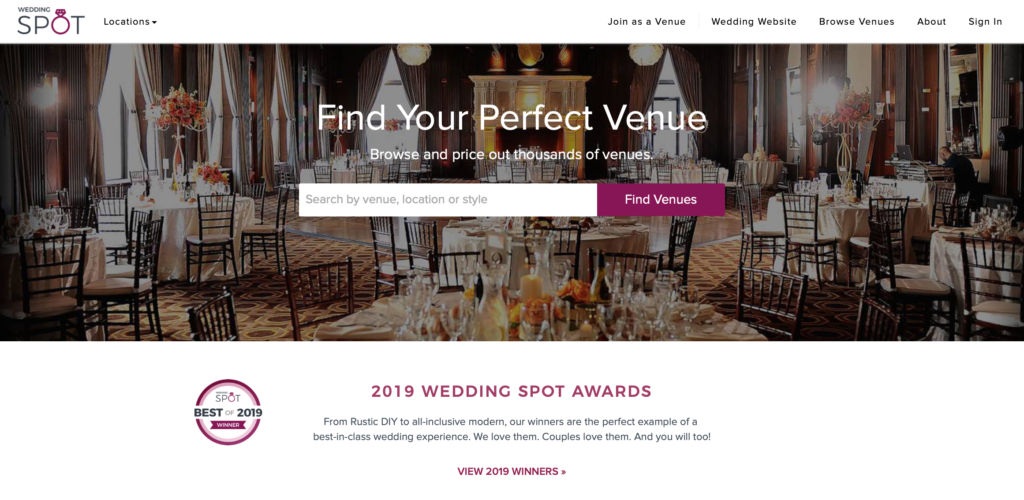
3. Kapow
Kapow is an online platform for booking and managing memorable, scalable and essential corporate events. The tool helps you find unique experiences at one-of-a-kind venues, national partnerships, and the service and expertise of local event experts all in once place.
Discover ideas for corporate events, client events, business meetings and company parties by browsing their curated event marketplace. Easily view venue availability and book event packages online. Get event ideas or help from their experts 24/7.
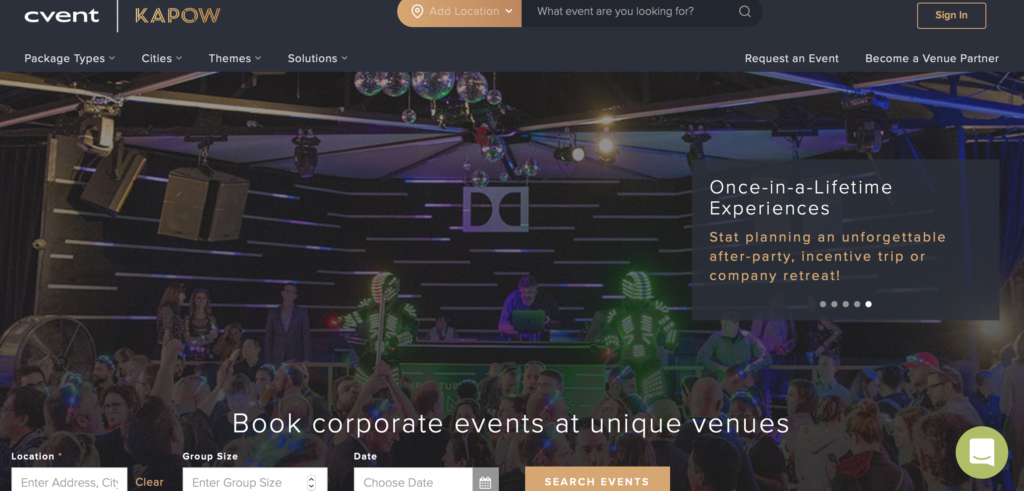
[Tweet “Complete Your Venue Search Faster with the Best Online Venue Finder Tools:”]
4. Aventri
Start with Aventri’s map-based venue search, and filter your results by the type of venue you’re looking for, the type of space you need, and more. From there, you can send RFPs to your top choices all from the Aventri (formerly known as etouches) platform.
Beyond that, one of Aventri’s biggest strengths is automated communication between clients, venues, and prospects.
5. EVENTup
Name your city, and EVENTup will bring you to a comprehensive marketplace for event venue sourcing. With EVENTup, event planners will find it easy to browse venues with specific filters and review detailed information about availability and features.
Once you discover a venue that fits your needs, you can connect instantly with event spaces and book locations quickly.
6. LiquidSpace
For corporate event planners, LiquidSpace might be the key to finding office space and meeting rooms in a hurry. While it was mainly built to help teams reserve flexible office space, it also offers real-time booking of large meeting rooms ” perfect for those last-minute off-sites you need to book ASAP.
Search for venues based on how much time you need, what type of event you’re planning, the amenities you need, and availability. Find a venue, get all the details, and immediately book it, all on the LiquidSpace platform.
7. Venuefinder
UK-based Venuefinder’s database includes more than 15,000 properties in Great Britain, plus plenty of international venues.
Its robust, advanced search feature should help you hone in on suitable venues ” but if it doesn’t, you can turn to the Venuefinder Concierge service and let their team take the reins.
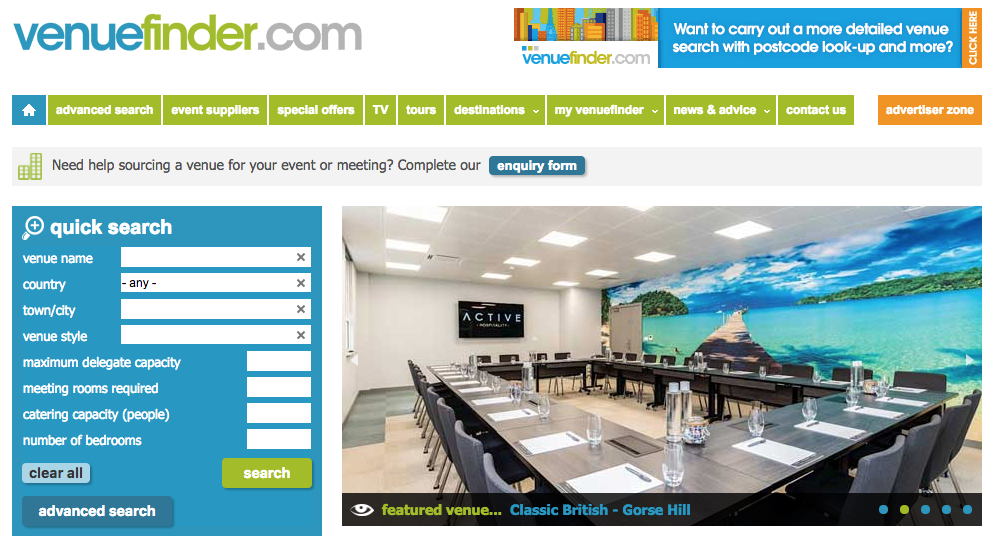
8. eVenues
Looking to get ahead and rent an event space? eVenues is here to give you a much-needed helping hand. eVenues develops, aggregates, and operates a self-service online venue search tool ” and if you need some extra help, a booking service to help you find an event space.
What does this mean for you? For starters, be prepared to have more time prepping your event and less time fretting over where it’s going to be held.
9. Regus
As the “largest network of workspaces and co-working space,” Regus provides convenient, high-quality, fully serviced spaces for teams to work, including large meeting rooms booked by the hour.
With such a large database of spaces, you’ll have no trouble finding a venue wherever you need (even an airport or train station!) with all the amenities you want. Plus, once you have the space, you can customize the floor plan to meet your needs.
10. Snappening
Snappening was born out of a real-life need by a real-life consumer trying to plan an exceptional event to create a lasting memory. Now, the tool makes it much easier to find venues ” they say it can save you 4-8 hours of venue searching.
While it’s only available in select cities, planners in those locations are in for a treat!
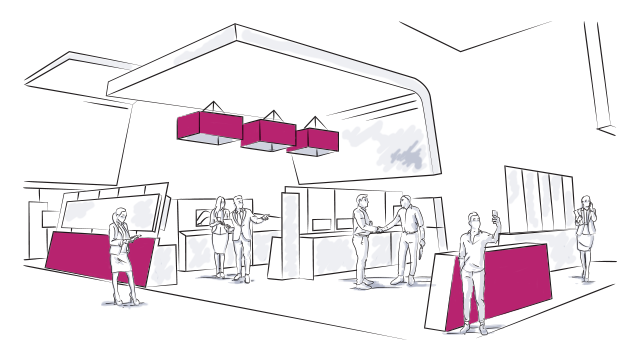
Now That You Know How to Find a Venue, Learn 15 Considerations For Picking The Right Venue
One of the most common questions I’m frequently asked is how to find the right venue. As with most things, striking a balance between experience, budget and emotion is a tricky business and requires a bit of a professional’s touch. (Ahem…cue the pro planners stage right.)
Maybe you’re warming to the role of “event planner” or new to the hospitality industry and aren’t sure where to begin? Fear not. You can quickly ramp up your venue selection skills by following a blueprint for friends, family, clients and referrals.
This three-part guide makes finding the right venue faster easier, and more rewarding. It also can’t hurt to look like the super hero who knew how to pull it off with ease, right?

PART 1: How do you want your guests to feel?
Whether it’s warm and fuzzy, inspired and educated, or as if they just got home from their best night ever out on the dance floor crawling into bed at 3 a.m., you have a notion about how you want your guests to “feel.” How they feel about you, your brand and your event before, during and after the occasion. You have a concept of the words you’d like them to use to describe it.
Capture that event essence for your planning benefit.
A great way to start your venue selection process is to fully imagine the event in your mind. Vision boarding can be a worthwhile exercise to prevent wasting precious dollars and hours to find the right venue, decor, rentals, entertainment or other event aspects that may not be aligned.
Have a solid game plan going into your hunt for the right venue. It’s perfectly acceptable to draw on inspiration from previous events, other things you’ve seen online or international events that were mucho impressive. It is not always necessary to completely reinvent the wheel at this phase.
1. Consider the venue’s style.
What style of venue are you hoping to secure? Will it be a traditional hotel conference center or expo hall, or does it need to be a private airport hanger for your high-dollar sponsors or VIPs? These details matter in helping you immediately narrow your search to find the right venue.
Have this in mind. Continue to build on your event vision.
Now that you have a fantasy space in your mind, think about what you want the guest registration and entry process to be like, what the guests will see and do first, and where you’d like to take them along the event timeline.
Deciding on what matters most before you’ve started searching will help you really hone in on venues that can help you accomplish these goals, and still meet your budget.
2. Consider the venue’s capacity and comfort.
Having a general idea about your maximum headcount is a must before you try to source venues. While we all know that you won’t have a guaranteed final headcount until a few days leading up to the event, and even that will have some margin of error, you simply must be certain you are picking out spots that will not be too small to accommodate your group comfortably, or so large that the event feels “flat” even if you have hundreds of people in the space.
While the venue’s maximum headcount matters, so do specific functional spaces and and rooms. If your event requires that guests move from various aspects of the building to attend group, or breakout sessions, you will also have to be certain that a multi-use facility can fully accommodate your needs.
Be certain you’ve requested both the venue’s seated and standing room only (SRO – cocktail-style) capacity. Be very explicit about this because venues will often suggest a larger guest count will fit into a space than is comfortable or reasonable. You can sometimes make this work with a small margin of error, but not with many guests. You want to make sure the space is as promised.
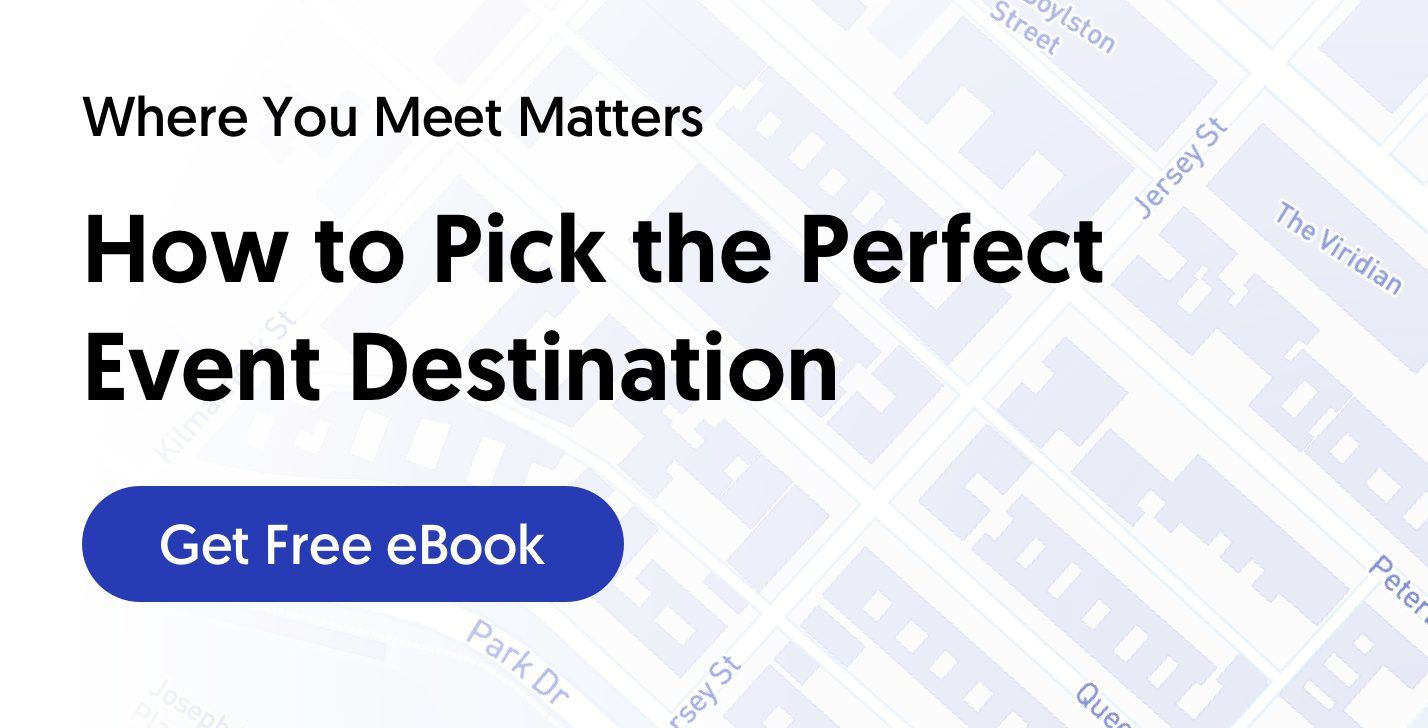
3. Consider your guests’ age and accessibility needs.
When we talk about the way guests will “feel”, we can’t forget about the demographics of our guests. Will the crowd be able to navigate a complicated entryway, hundreds of stairs and is limited seating appropriate? Does the venue have an elevator or ramp for guests who require accessible entrances? Thinking about this need in advance and planning for it will help guide your venue site visit process and make sure you find the right venue for your audience.
I personally find it very difficult to be put in a position to stand still for several hours at a reception in heels if at least some seating isn’t provided. Moving around makes it less arduous, but it’s lovely to offer your guests that option so everyone has a pleasant experience.
4. Decide your event’s flow and function needs.
Have you ever been to an event that gave very little thought to guest flow and created huge bottlenecks in certain spots, say around the bar, the buffet line, the bathroom or between meetings because there was only one refreshment area or one good WiFi signal in the building?
Not a great scene.
Be cognizant of what your headcount will require to actually move through your event, what flow you want them to take, and at what pace. If your event is large, think about multiple stations and extra catering staff to make the process of grazing or breaking faster and easier, and keep the event feeling as if it’s moving along as planned.
5. Define your event’s dates, as some venues might not be available.
One of the largest factors that may play into your event vision is the event date. Not only will seasonality matter in most places worldwide, so will holidays, weekdays, weekends, indoor or outdoor activities and multi-day requirements.
It will be much easier to find the right venue if you’ve answered a few questions in advance:
- Is the date flexible? Do you have the ability to pick a non-peak date or time of day to drive down the venue rental cost?
- Will weather impact the date or season you ultimately select? Do you need a backup and what’s required to hold a “rain” or “weather” date? Does the venue require indoor and outdoor facilities for your event? Do you need a weather plan in case of a weather emergency?
- Is it far enough in advance that you have time to adequately plan the function or meeting? If you are too crunched for time to adequately plan, has an alternative date been considered? Remember that rushing often costs money due to extra fees, rush orders and peak pricing timelines.

6. Identify your event’s tactical time.
In addition to the date(s) of the event, there’s the matter of time”both duration and which part of the day the event will occur. Think about your favored venues during the same time you’d be hosting your function. Are they in places guests can easily get to? Is traffic or transportation an issue?
If possible, arrange to have your site visits around the same time of day that you’re planning on hosting your event. You’ll have a better understanding of how the venue will look for your guests (without any decor added), and if sun will be an issue for receptions, presenters or ambiance. Learn more about creating your event timeline here.
7. Decide how you want to bring guests together in the event space.
Going back to the event vision, think about how you’d like guests to gather during the function. Will they need to stand, sit or both? Do you want them to mingle in small groups or stay rather spread out? Will they need to carry around plates of food and drinks and also shake hands? Will they have a gift bag they also need to navigate? Is networking a key priority? If so, how will you foster it?
Do your best to walk the event the way a guest would and think about their challenges in advance so you can solve them. As you arrange your site visits, be specific with your needs and vision. If possible, include your event vision for the venue managers upon first contact.
[Tweet “Having a general idea about your maximum headcount is a must before you try to source venues”]
8. Identify your event’s creative complexity.
Is it a single-day event in one place with local attendees, or a multi-day conference with worldwide attendees that require significant housing blocks, accommodation, complex transportation, etc.?
This plays a major role in where you narrow your search results. It also matters whether or not you are planning locally in your established market, or trying to plan the event from afar.
If you’re in your own neck of the woods, you probably have a pretty strong handle on the venue options in your area. However, if you’re planning from afar, I’d recommend you tap the local CVB and DMC network to produce a better event with a most appropriate space. You’ve got the ability to utilize exceptionally qualified event industry experts in a new market, and it would be a shame not to put that expertise to work for your event’s benefit.
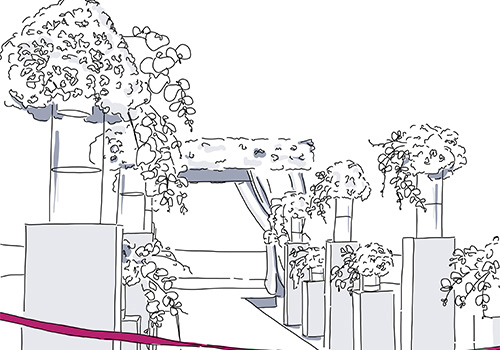
PART 2: What do you want your guests to remember?
The mark of a great of event is one where all the details happen seamlessly in the background, and nothing logistical serves as a distraction from the the intended purpose of the event itself. There’s nothing that stands out more to event industry types than an event that had logistical hiccups. (After all, we are our own worst critics.)
Thinking back to your event vision, focus on the event aspects that matter most and those that you want your guests to really remember. Will it be the food and drink, the entertainment, the unbeatable speaker content for top-notch education?
A quick set of questions to ask yourself at this stage include:
- Why are we having this event?
- What are we trying to accomplish while guests are with us and
- What do we hope to accomplish by the time the event is over? What’s next?
Whatever matters most for the guest memory bank is where budget dollars should be invested.
But, how does this help you find the right venue?
It comes down to amenities and offerings. If food is the most important aspect of the event, but you need to be able to bring in your own chefs or caterers, then you’ll need to find a venue with a flexible catering policy. That’s a go/no-go issue for you.
If you are going to have a technically complex event, you absolutely cannot skimp on your A/V budget, on-site support and a sophisticated WiFi coverage plan. Acoustics, and being able to hear speakers, may also play a significant role in venue selection.
Document your event priorities for your venue site visits so the venue managers can help make sure you see the things that matter most to you and are most efficient with your time. This will help you find the right venue with the right amenities faster.
9. Build the event budget.
There are numerous items that go into building a comprehensive event budget, but I think the aspects that are often the most important when you are trying to find the right venue, outside the expected venue rental fee, are:
- Food & Beverage: Will you be beholden to an onsite (embedded) cater, a preferred catering list, or can you bring you own food? Are there spending minimums you must hit for your preferred date(s)?
- Other Rentals: It’s incredibly important to confirm exactly what IS and IS NOT included in the venue rental agreement. Bar service, glassware, linens, china, chairs, tables, carpet, stage, podium and other tiny details can add up to big supplemental expenses if you don’t consider these in your venue negotiation process up front and plan to ask about them.
- Audio-Visual (A/V): How much is already provided at the venue, how much is included in the rental price and how much will you need to supplement the existing setup?
- Accommodations & Transportation: Will the event require a formal hotel block, a group room rate, or multiple properties? Will you need to provide ground transportation, shuttles, taxi or ride sharing services? Do any venues offer free shuttle services already?
- Preferred Vendors and Suppliers: Are you able to bring your own vendor team, or do you need to use an established team? Are there any other restrictions about vendors and suppliers you need to know about?
- Registration & Ticketing: Will this event be free or paid, and will you require additional staff, security and support to host the event and handle your registration and entry process? Have you accounted for the extra setup and staff you may need? Will the income from a paid event be part of your budget consideration? Have you considered your ticket policy in case of an emergency or weather-related cancellation?

10. Arrange event venue space site visits.
Once you’ve narrowed your search to find the right venue, it’s time to arrange site visits. If you’re like most busy event professionals, you won’t have time to do endless visits, so you need to be certain you’ve really selected the best handful of options for your event.
Here are a few additional details to consider as your finalizing your venue selection process.
11. Decide how much decor you want to incorporate.
How much additional decor and ambiance will be necessary at each venue? Some venues may have incredibly low rental fees and great, flexible catering, but leave you with a blank box that you’ll have to completely overhaul in order to achieve your event vision. And that’s outstanding if that’s what you want and have the decor budget to account for it. Transversely, some venues will set the intended mood without effort or nearly any additional decor or rentals.
Think about the impression you want guests to start with (first look) and the one you want them to leave with (last impression), and consider this as you work to find the right venue. We always like to take a quick peek into the pre-function, lobby and restroom areas too. These parts of the event experience can be overlooked if you’ve not remembered to make them part of your site visit checklist, but they are crucial elements that guests will certainly remember if anything isn’t up to snuff.
12. Consider the acoustic needs of your event.
We’ve mentioned acoustics, and sound a couple of times, but during site visits, also pay attention to ceiling height and how sound carries in each room. Is it muffled or completely absent, or are there marble or hardwood floors that are going to magnify every shoe scuffle and loud bit of laughter? Ask the venue manager about the most common comments about sound, and being able to hear at events and what they offer to mitigate any risks.
Sight lines are also of critical importance”especially for presentations. Will everyone be able to see the speaker? If you’ve got an important presentation or projected image, will the lights be dim enough in the planned area to be able to see the screen? Be very specific about attempting to recreate the event as closely as possible to the intended experience. Rooms with columns can sometimes be challenging for presentations.
13. Identify what support you need in terms of event staffing.
Not all venues are created equal, nor are their teams. You’ll want to know who will be responsible for not only selling, but also attending and servicing your event, and what level of staffing is provided by the venue.
Important questions about venue coordination, housekeeping and security should be solidified in advance. You need this information to know if you need your own supplemental staff, or will be mandated to hire additional staff for risk, safety or insurance purposes.
14. Right-size the venue’s potential risk.
A common “out of sight out of mind” aspect to venue selection involves looking beyond the space itself and reviewing its contracts, rental policies, refund requirements and any other unanticipated restrictions. It’s also important to learn about any additional insurance policies you may be required to obtain, and any risk assessments either party may need to complete prior to contract signing. Learn more about creating a risk management plan for your event here.
15. Identify your event’s parking needs.
Watch the parking lot, street parking and public transportation around the venue. How easy will it be for the guests to navigate each venue’s setup? Take note and plan appropriately.
One of the best (and often underutilized) additions to an event is valet service. I particularly love valet for after-work receptions. People are already running late, and having a valet lets them pop right into the event without losing 5 – 10 more minutes parking the car. It’s a great perk if your budget allows for it.

PART 3: What do you want your guests to do during and after the event?
Finally, you want to consider what the guests will actually do while the are with you, and that you’ve planned for their comfort and entertainment along the way. In addition to the venue itself, it’s important to consider the broader destination of where you are hosting your event.
Here’s our quick checklist:
- Will they feel self-sufficient in navigating the event for an individualized experience?
- Can they enter the event quickly, easily and without unnecessary commotion or tasks? Have we done the heavy lifting for them?
- Will they feel well fed and have we quenched their thirst? Have we provided a variety of beverages?
- Can they find staff to ask questions?
- Can they find restrooms?
- Can they find quiet spaces to make phone calls, check email and “escape” the experience momentarily if necessary?
- Will we please and delight at least 80 – 90% of our attendees?
As guests leave, what are you hoping they will do next? Buy your product? Remember your brand fondly? Bring a colleague to the conference with them next year? Think about the exit strategy for guests so you are certain you captured the information you needed from everyone who attended, and you have the right follow-up strategy.
Now You’re Ready to Find the Right Event Venue!
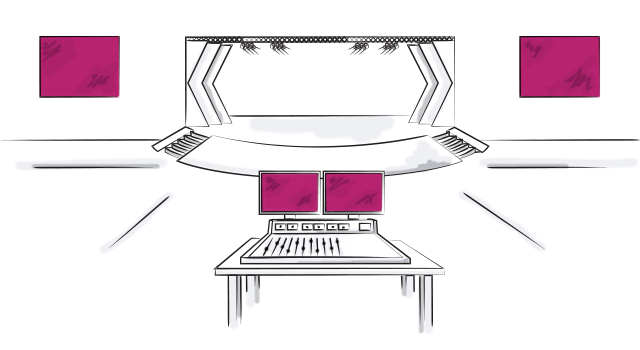
After you find the right venue with the help of this guide, you can be certain your event will be an influential part of any winning business strategy.
Take it from us, it never hurts to be over-prepared. Join Social Tables on Twitter and Facebook, and share a story about how you used one of these tips to save an event.
Up next, discover the best floor plan layout apps to help bring your event to life in your selected venue.
Have more questions about how to find a venue online?
After you’ve gone through the process of identifying a few venues that will work for your event, you should submit an RFP to each one. this can be done through a venue’s website or an online resource like the Cvent Supplier Network. Venues will then return to you with a proposal for your event, and you can sign with the best one.
A few ideas where you may be able to host events for free or a low cost include a chamber of commerce, a library, municipal buildings, or a public space. Keep in mind that as the size and complexity of your event increases, it will be harder to host it for free anywhere.
Most venues charge by the hour, and have a minimum time that they are available for. For a small event under approximately 30 people, you may be able to find a small venue that is available for around $100 per hour.

